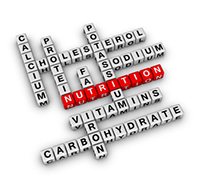You need a kidney helpful diet regime when you have
chronic kidney disease or
kidney failure. Watching what you take in and drink will help you keep healthier. This area of our web site provides basic data about the
kidney friendly diet program.
 |
| kidney diet |
Maintain in brain that diet regime demands differ from individual to person, based on measurement, exercise, phase of kidney disease and other well being issues. Speak to a renal dietitian, somebody who specializes in the kidney-friendly diet regime, to find a food prepare that satisfies your needs.
Why is diet plan essential for kidney patients?
What you take in has an effect on your well being. A well balanced diet regime, reduced in excess fat and salt, can assist you management your blood sugar and keep a healthful blood pressure. A wholesome diet could also assist gradual down kidney illness.
Dependent on your phase of kidney condition, you may possibly also need a kidney-pleasant diet program. This diet program goes a action additional. It limits specified minerals in the foodstuff you consume. This aids hold waste from constructing up in your blood and might assist stop other well being issues.
We'€™ll start by reviewing the fundamentals of a healthful diet plan. Then, we'€™ll take a search at the kidney-pleasant diet plan and some useful kidney-helpful sources.
Healthier Diet regime Fundamentals
All diet programs, which includes the kidney-pleasant diet plan, want to just take into account some of the exact same issues, like:
Calories
Protein
Carbohydrates
Excess fat
Calories
Your body will get energy from the energy you eat and drink. Energy arrive from the protein, carbohydrates and body fat in your diet program. How several calories you want relies upon on your age, sex, dimensions and activity stage. You could also need to have to change how many energy you eat dependent on your health considerations.
Some men and women will need to limit the calories they take in. Other individuals could want to have far more calories. Your dietitian can assist you figure out how many energy you require each and every working day. Perform with your dietitian to make a food plan that aids you get the right volume of energy.
Protein
Protein is a single of the constructing blocks of your human body. Your entire body demands protein to grow, recover and continue to be healthful. Having way too little protein can trigger your pores and skin, hair and nails to be weak. But getting also a lot protein can also be a difficulty. To stay healthier and aid you truly feel your ideal, you may possibly require to change how much protein is in your diet plan.
The quantity of protein you ought to have is dependent on your dimensions, activity degree and stage of kidney condition.
If you have kidney condition but are not on dialysis, doctors might advocate that you limit how significantly protein you consume. This is because eating plans very high in protein can make the kidneys operate harder and may possibly result in far more harm.
When you are on dialysis, you could need to have to take in more protein. This is due to the fact you will shed some protein in the course of your treatment options.
Ask your medical professional or dietitian how considerably protein you ought to have. Your dietitian can support you make a food plan that assists you get the appropriate amount of protein.
Carbohydrates
Carbs are the easiest sort of power for your body to use. Healthful sources of carbs incorporate entire grains, fruits and greens. Other sources of carbs consist of sugar, honey, hard candies and sugary beverages.
Some carbohydrates are large in potassium and phosphorus, which you might require to restrict relying on your stage of kidney condition. You might also want to look at your carbs cautiously if you have diabetes. Your dietitian can help you discover a lot more about the carbs in your diet program.
Fat
You require some body fat in your diet plan to remain healthier. Unwanted fat gives you vitality, retains you heat and helps you use some of the vitamins in your meals. But too significantly unwanted fat can guide to bodyweight gain and heart condition. Try to limit excess fat in your diet plan, and choose more healthy fat when you can.
Much healthier body fat or €œgood€ excess fat is named unsaturated body fat. Illustrations of unsaturated body fat incorporate:
Olive oil
Vegetable oils
Nuts
Fish
Unsaturated fat can aid reduce cholesterol. If you require to gain bodyweight, attempt to try to eat much more unsaturated excess fat. If you want to drop fat, limit the unsaturated body fat in your diet program. As often, moderation is the essential. As well much €good€ unwanted fat can also lead to issues.
Saturated excess fat, also acknowledged as €œbad fat, can elevate your cholesterol and place you at danger for heart illness. Examples of saturated fats are:
Butter
Lard
Some meats
Limit these in your diet plan. Pick healthier, unsaturated fat as an alternative. Trimming the body fat from meat and getting rid of the skin from hen or turkey can also assist restrict saturated unwanted fat.
Sodium
Sodium (salt) is a mineral discovered in nearly all food items. As well a lot sodium can result in inflammation, make you thirsty, and increase your blood stress. This can damage your kidneys more and make your coronary heart operate harder.
A single of the best items that you can do to stay wholesome is to restrict how a lot sodium you consume. To limit sodium in your diet program:
Do not incorporate salt to your food when cooking or ingesting. Consider cooking with fresh herbs, lemon juice or other spices.
Decide on fresh or frozen veggies as an alternative of canned greens. If you do use canned greens, rinse them before ingesting or cooking with them to remove further salt.
Shop for things that say €œreduced-sodium€ or €œlow-sodium. Keep away from processed foods like frozen dinners and lunch meats.
How is a kidney-friendly diet program different?
When your kidneys are not functioning as effectively as they must, they may possibly allow waste and fluid develop up in your body. Above time, the waste and added fluid can result in coronary heart, bone and other wellness problems. A kidney-helpful diet restrictions how considerably of specific substances and fluid you just take in. This can aid hold the waste and fluid from constructing up and triggering difficulties.
How strict your diet regime should be is dependent on your phase of kidney illness. In the early levels of kidney illness, you could have little or no restrictions on what you try to eat and consume. As your kidney ailment receives worse, you may possibly need to limit your:
Potassium
Potassium is a mineral discovered in nearly all food items. Your human body requirements some potassium to make your muscle tissues function, but also significantly potassium can be dangerous. When your kidneys are not operating properly, your potassium level could be as well high or way too low. Having way too much or way too tiny potassium can lead to muscle cramps, irregular heartbeat and muscle mass weak point.
A lot of men and women with kidney disease or kidney failure need to have to limit potassium. Request your dietitian if you want to limit potassium.
Phosphorus
Phosphorus is a mineral located in a lot of meals. It performs with calcium and vitamin D to hold bones healthy. Wholesome kidneys hold the right equilibrium of phosphorus in your entire body. When your kidneys are not working effectively, phosphorus can develop up in your blood. Too significantly phosphorus in your blood can lead to weak bones that crack simply.
Numerous men and women with kidney disease need to have to limit phosphorus. Ask your dietitian if you want to limit phosphorus.
Dependent on your stage of kidney illness, your medical doctor may possibly also prescribe a medicine referred to as a phosphate binder. This assists to preserve phosphorus from constructing up in your blood. A phosphate binder can be valuable, but you will nonetheless require to watch how a lot phosphorus you try to eat. Request your medical doctor if a phosphate binder is right for you.
Fluids
You require drinking water to reside, but when you have kidney illness, you may possibly not need to have as much. This is since destroyed kidneys do not get rid of further fluid as well as they ought to. As well much fluid in the entire body can be unsafe. It can lead to large blood pressure, swelling and coronary heart failure. Extra fluid can also develop up close to your lungs and make it difficult to breathe.
Depending on your stage of kidney ailment and your treatment method, your physician could notify you to limit your fluid. If your medical doctor tells you this, you will require to minimize back on how significantly you drink. You might also need to lower back on some food items that include a good deal of h2o. Soups or food items that soften, like ice, ice cream and gelatin, have a great deal of drinking water. Several fruits and greens are higher in water, way too.
Question your dietitian if you require to restrict fluids.
If you do need to have to limit your fluids you may possibly really feel thirsty. To assist you quench your thirst, you may attempt to:
Chew gum
Drink from small cups
Rinse your mouth
Suck on a piece of ice, mints or difficult candy (Bear in mind to select sugar free sweet if you have diabetes.)
What about nutritional vitamins?
A kidney-pleasant diet program might make it challenging to get all of the natural vitamins and minerals you require. To assist you get the proper stability of vitamins and minerals, your dietitian could advise a unique complement made for people with kidney condition.
Your dietitian may possibly also suggest a particular kind of vitamin D, folic acid, or iron capsule, to help steer clear of some frequent aspect results of kidney illness, like bone condition and anemia.
Typical multi-vitamins could not be healthier for you if you have kidney disease. They may possibly have too significantly of some nutritional vitamins and not ample of other folks. Talk to your dietitian to locate vitamins that are appropriate for you.
What if I have diabetes and kidney condition?
Diabetic issues is the leading trigger of kidney failure. Diabetes can also hurt other elements of your entire body, like your eyes and coronary heart. If you have diabetic issues, you will require to view your blood sugar and diet plan to stay healthful. Function with your dietitian to make a kidney-helpful food program that aids you keep your blood sugar in handle.






















